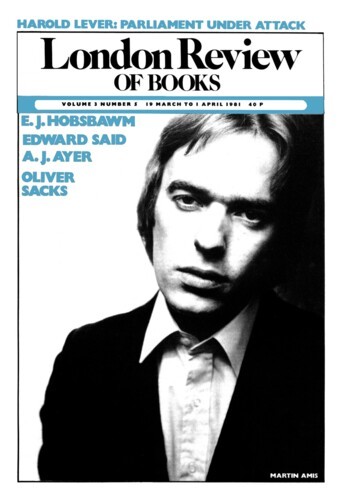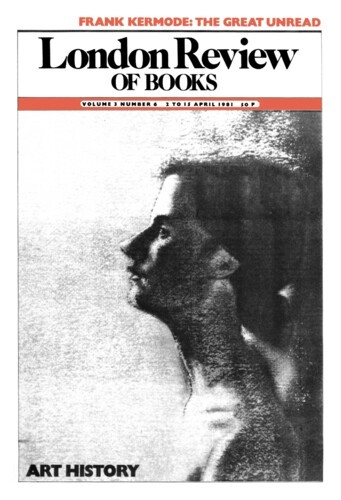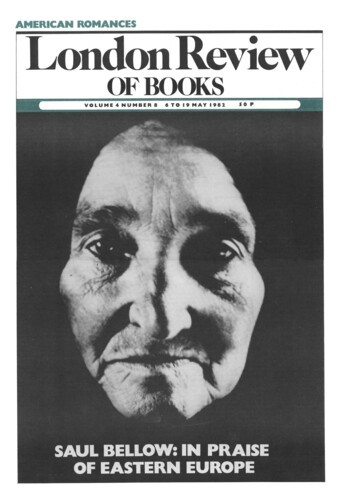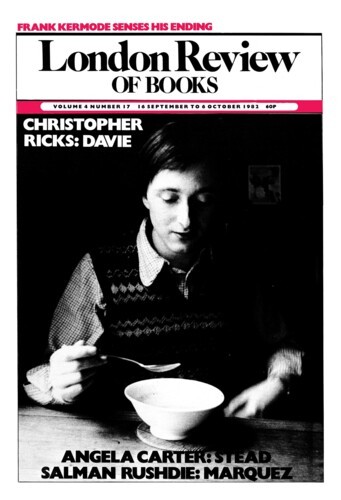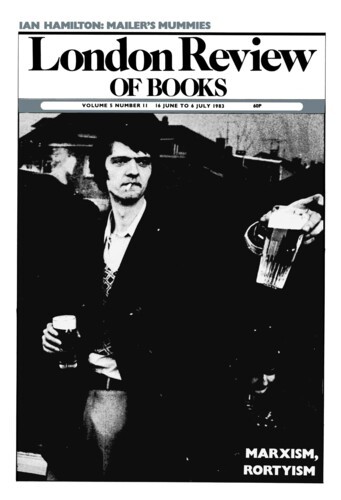Banality and Anxiety
Michael Mason, 19 March 1981
It is common knowledge that British publishing is in the doldrums. This is generally thought of as a temporary state of affairs, but it is conceivable that something irreversible is taking place. Today’s new wisdom about publishing may become as enduring, familiar and dispiriting as the truism of the decline of British cinema. That decline had much to do with television. Book publishing has seemed, hitherto, robust on this flank. The industry prospered in the 1960s, when television was completing its conquest of film in Britain. Books and television do not compete for the same ground, it might be said. In particular, there is a difference in respect of cultural quality between their undertakings. Books can be learned, beautiful, experimental, mentally searching, subversive and fanciful to an extent that television very seldom permits itself to be. Television is almost always banal.
